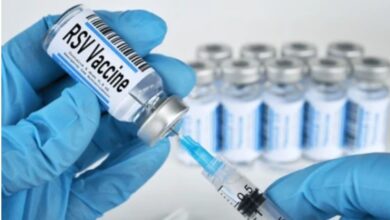MENOPAUSE “SHOULD NOT BE MEDICALIZED”

“Medicalized” is a word I have never used or even seen used before. It is used here in the context of menopause by two researchers editorially expressing their views about menopausal hormone therapy. In the last paragraph of their article in American Family Physician they state the following: “Menopause is a positive life experience for many women and should not be medicalized.”
Without looking very hard, I think you’ll find millions of women who will disagree with that statement, who didn’t find very much “positive” that came from that life event. The doctors first say the “only symptoms unequivocally associated with menopause are hot flashes, vaginal dryness, and night sweats.” Isn’t that enough? They also say aches, pains, tiredness, incontinence, and mood disorders are mistakenly blamed on menopause when they really are caused by aging.
They quote extensively data from the Women’s Health Initiative (WHI), the 5 year study of menopausal hormone therapy involving 16,608 women. That’s the study that was stopped early because of adverse events that changed the entire attitude toward the use of estrogen in menopause. Women given “combined estrogen-progestin had increased risk of invasive breast cancer, stroke, and pulmonary embolism (blood clots in the lungs)…..Estrogen-only treatment increased the risk of stroke but not breast cancer or pulmonary embolism.” Estrogen alone also “increased ovarian cancer incidence and mortality.”
These findings almost caused menopausal hormone therapy to disappear from the medical milieu. An incredible amount of unrest and mistrust was expressed by the millions of women affected by this announcement, and women fled from estrogen use. Fear of breast cancer, et al. was out of control. Without hormone replacement therapy women had fewer new cases of breast cancer, but instead, they had a huge increase in the vasomotor symptoms (hot flashes, night sweats) and vaginal dryness of menopause. Women were so miserable they looked for anything that might make their “positive life experience” more positive. Finally, calm returned and hormone therapy was re-evaluated. Now, if women are informed of the harms, for “bothersome vasomotor symptoms, menopausal hormone therapy should be [can be] used for the shortest duration possible.” The USPSTF still recommends against hormone therapy, but some patients are so debilitated by symptoms, they have no option but to take estrogen.
So, getting back to “medicalizing” menopause, the only hormone therapy needed is that required to control severe vasomotor symptoms. And current treatment is short term and at the lowest effective dose. Most of the anxiety around the WHI outcome has died down, and women are taking estrogen again, but with a great deal more awareness and caution, and not for long periods of time.
Reference: Editorials: Fugh-Berman A, Mintzes B. Menopausal Hormone Therapy: Limited Benefits, Significant Harms. Am Fam Phys 2025 July;112(1):15-16.




